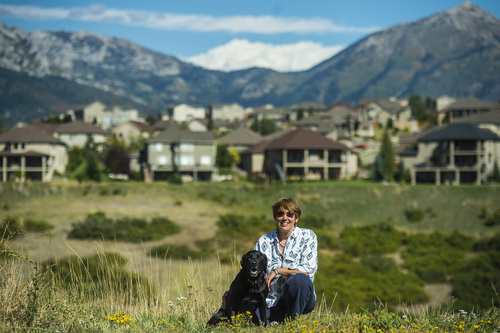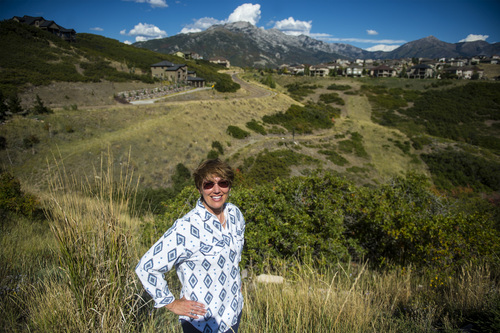This is an archived article that was published on sltrib.com in 2014, and information in the article may be outdated. It is provided only for personal research purposes and may not be reprinted.
Residents in the southeastern part of Draper City will get to vote on a first-of-its-kind referendum that has the potential to dramatically impact their local property taxes.
City officials had pulled the plug on a months-long referendum effort earlier this month when, just two minutes before the 5 p.m. Sept. 2 deadline to certify petition signatures, they informed organizers they had determined the ballot question wasn't allowed by state law.
The Utah Supreme Court ruled otherwise Wednesday, just hours after holding an emergency hearing as county election clerks bump up against ballot-printing deadlines.
Chief Justice Matthew Durrant, in a one-paragraph ruling, ordered the city to take all necessary steps to accommodate voters of the Traverse Ridge Special Service District, many of whom believe they are victims of double taxation.
"I can't believe it," said Christine McClory, a referendum organizer. "The bottom line was, principle was on our side.… This was justice."
Draper spokeswoman Maridene Alexander said the city "will respect the court's decision. It will be on the ballot and will go up for a vote."
The city council will meet in coming weeks to decide how to proceed if the referendum repealing the district budget passes, she said.
Resident Lana Mawhinney argued the case for the referendum organizers, apologizing to the justices several times for her lack of legal expertise. "I'm new at this," she said.
Draper City, meanwhile, hired J. Craig Smith as outside counsel to advance the argument that the referendum was not allowed under the Utah Constitution or state statute.
Smith's main points were that the Constitution allows referendum by voters statewide, in counties or in cities — but not in special service districts, such as in this case. He also said the Draper City Council's adoption of a budget and tax rate for the district was an administrative, rather than a legislative function, and thus not subject to referendum.
During the hearing Wednesday, several justices seemed skeptical of the argument that setting a budget was not a legislative act.
"I believe budgeting is an administrative function," said Smith. He noted that the certified property tax rate is determined by a formula and the budget follows from that, barring a tax increase.
Overall, he added, adopting the tax rate and budget are "a very mechanical process… we aren't given a lot of discretion."
Justice Jill Parrish countered that "[it] seems to me inherently legislative" and Justice Thomas Lee suggested that setting a budget seems "a classic legislative act, deciding how much of the public's money is going to be spent."
That view held in Durrant's order, which will be followed sometime in the near future by a more detailed opinion.
Mawhinney, who confirmed in an interview she is "absolutely not" an attorney, said the experience was exhilarating. "It was exciting and it was thrilling to be able to exercise our right to argue before a court for the people — to be able to represent myself as a voter and [to advocate for] voters' rights."
Referendum organizers from the roughly 1,200-household Traverse Ridge/Suncrest neighborhoods believe the special-district property taxes they pay — about twice as much as the regular city property tax also levied on them — are not justified by the admittedly greater costs of snow removal and road maintenance in the higher-elevation area. The city, which delivers the services, argues the taxes are warranted to cover the additional costs. Officials have, however, hired an independent consultant to examine the budget.
This case is unusual in a couple of respects.
It is believed to be the first time a referendum has been attempted in a special service district in Utah. Also, this is the first case state and county election officials can remember in which a local government has let such an effort get so far down the road — with city-prepared petitions passed and hundreds of signatures gathered and submitted — before officials decided just before the deadline to block the effort.
Draper Mayor Troy Walker and city council members in a letter to residents said the unprecedented nature of the referendum and the complex legal issues raised by it took a lot of time to sort out.
"There was no hidden agenda by the city," the letter said in part. "The city needed time to research this question with outside counsel and formulate a decision."
Twitter: @danattrib





